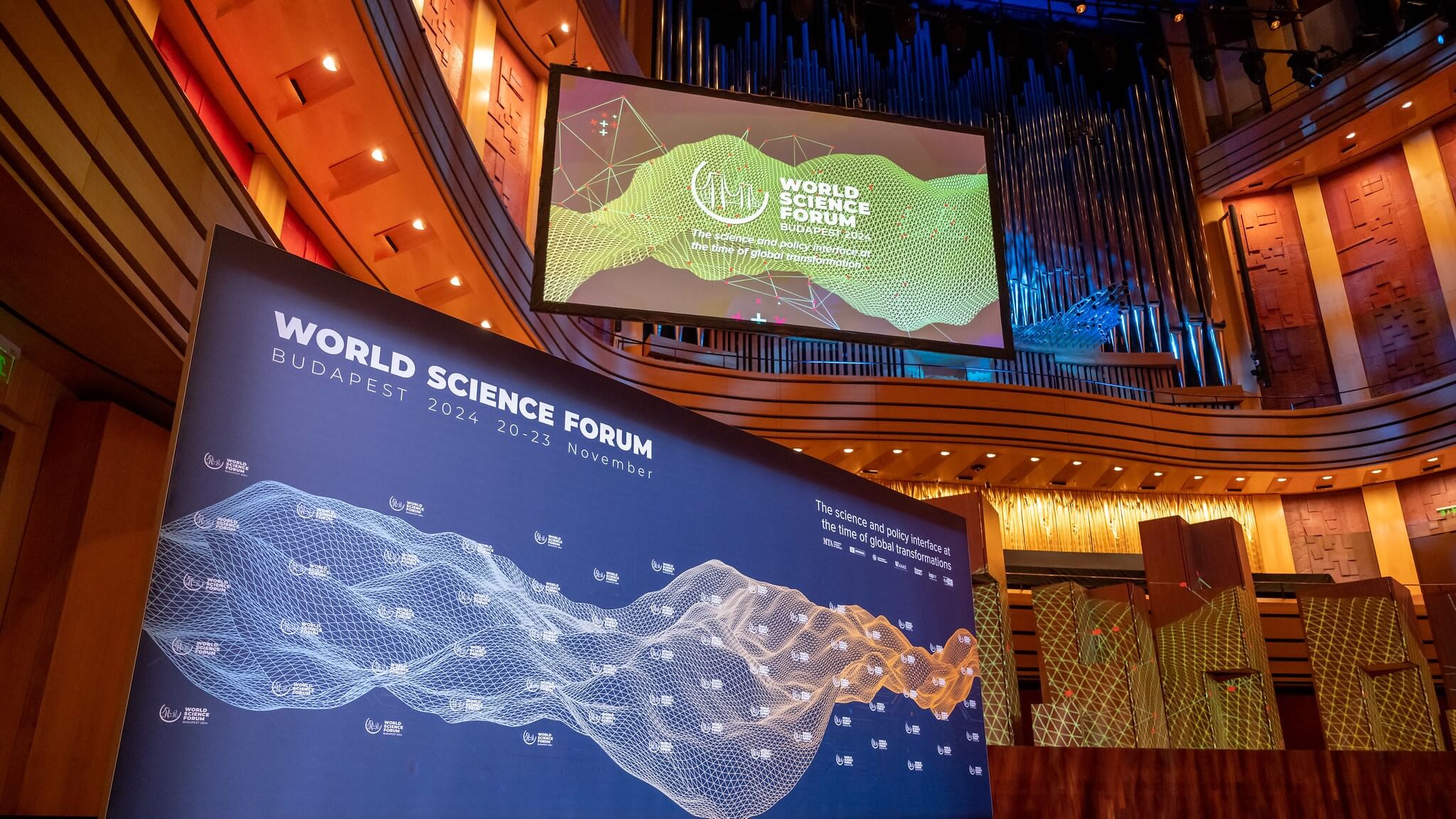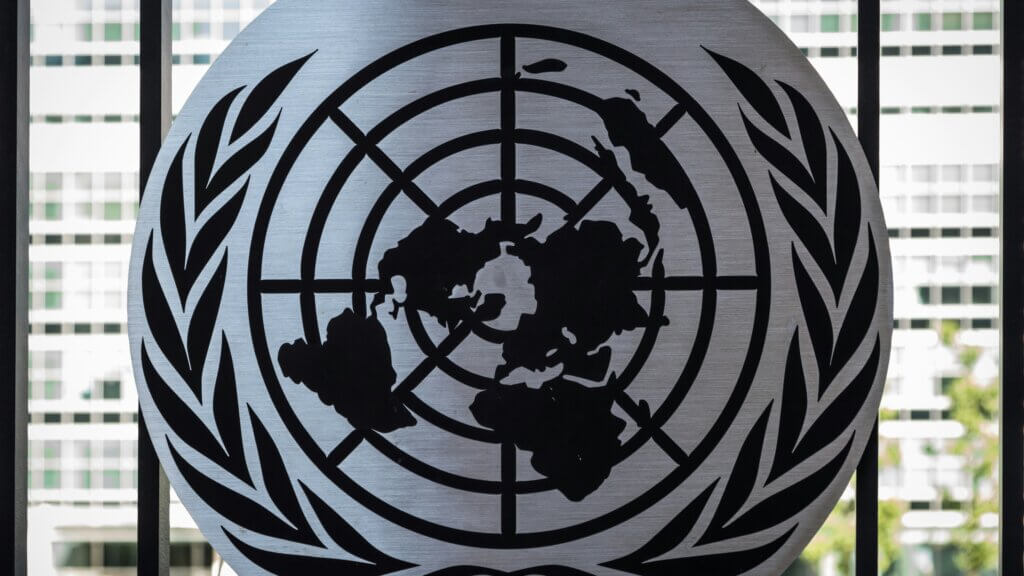
The Declaration underscores the critical role of science in addressing interconnected crises such as climate change, rising inequalities, and the rapid evolution of disruptive technologies.
Scientists emphasized the importance of trusted and inclusive science-policy interfaces, robust ethical standards, and equitable access to the benefits of scientific progress.
By adopting this Declaration, the scientific community calls on policy-makers, organizations, and society to act decisively in aligning science and policy to secure a sustainable and equitable future for all.
Text adopted on 23 November 2024, Budapest
Preamble
Driven by the initiative and commitment of the three founding organisations of the World Science Forum (WSF) – the United Nations Educational, Scientific and Cultural Organization (UNESCO), the International Science Council (ISC), and the Hungarian Academy of Sciences (MTA) -and together with the WSF partner organisations – the American Association for the Advancement of Science (AAAS), The World Academy of Sciences (TWAS), the InterAcademy Partnership (IAP), and the European Academies’ Science Advisory Council (EASAC) – we, the participants of the 11th World Science Forum, held from 20-23 November 2024 in Budapest, adopt the present declaration.
Our world is undergoing rapid transformation and faces an uncertain future. Extraordinary scientific and technological advances are at odds with insufficient progress on addressing the challenges of climate change and most of the Sustainable Development Goals, a growing number of armed conflicts, rising inequalities and the emergence of rapidly evolving and disruptive technologies. We urgently need to broaden scientific understanding and to promote science-informed, adaptive and long-term thinking and decision-making.
Efficient, trusted and creative science and policy interfaces are always critical, but never more so than at this time of global transformations.
Science as a universal language is the evidence-based tool for understanding our world and its future. It should guide society, policymakers, and the economy on risks, opportunities, and choices. To remain effective, science must be open, and must evolve and engage with other human endeavours, to support sustainable progress without undermining evidence-based solutions. We must uphold the right to science while recognising and addressing the limits of science and its potential to do harm when scientific knowledge is misused. We note this particularly with regard to armed conflict. We recognise the evolving role of science diplomacy in bringing together science and policy to address these challenges and promote science for peace.
While we recognise the challenges to evidence-based policymaking, we note the increasing risks posed by disinformation and other actions that undermine vital trust in science.
We note with regret that distrust, and outright denial of science have been incorporated into some political and social agendas. We must confront the danger posed by these phenomena and strive to counteract potential impediments to our capacity to address challenges to the global commons. We affirm the universality of science while recognising that its impact will be limited unless the benefits of its advancement and its applications are equitably shared.
We support the implementation of integrated methodologies, that are applicable to all countries, for measuring sustainability transitions as presented at WSF2024. We encourage the international science community to contribute to consolidating these methodologies to help meet the Sustainable Development Goals and support sustainable transformation and wellbeing in our societies.
In this context, leaders and representatives of the global science and science policy communities met in Budapest for the 11th World Science Forum on 20-23 November, 2024. The theme of the Forum was The Science and policy interface at a time of global transformations, a response to the 2024 UN Pact for the Future and Agenda 2030 for Sustainable Development.
The participants of the Forum agreed to the following:
We acknowledge the crucial role of science, technology, and innovation in tackling urgent global crises through the interface of science with policymakers, in order to provide options for solutions to local, community, national and regional challenges;
We note that science is too often downplayed or ignored by policy makers, business leaders and civil society when considering the future of our societies and the planet.
We warn of the dangers posed by the intentional undermining of trust in science.
We note that science must earn trust through integrity, and effective and context-appropriate communication;
We note that the global science community must commit fully to shared values and principles, including academic and scientific freedom, scientific excellence, openness and transparency, reciprocity and accountability, ethical compliance and integrity, as well as ensuring diversity, equity, inclusion, and accessibility in the production and publication of knowledge;
We note that science education is of critical importance to empower and inform societies;
We note that science has a critical role in evidence-based policymaking across sectors through whole-of-government and whole-of-society approaches;
The members of the Forum thereby:
Call for the strengthening of both whole-of-government and within-agency science advice mechanisms, including those in finance and foreign ministries, that in many nations and in parts of the multilateral system are underdeveloped or absent;
Call on governments of nations at all levels of development to ensure that knowledge production and translation is supported as a vital component of national development and wellbeing. Academic and scientific freedom must be enabled, respected and sustained, science kept as open and inclusive as possible, and science and scientific researchers protected [1];
Call on governments and other actors in times of conflict to protect scientists and science ecosystems;
Call for the strengthening of national education systems and their science education practices, to promote an understanding of the scientific process and the need for critical thinking;
Call on the scientific community to redouble efforts to ensure the production of trusted knowledge and pragmatic solutions, and to eliminate harmful scientific practices in both the production and reporting of knowledge;
Call on all stakeholders to foster the participation of early-career researchers in science-policy dialogues;
Call on the scientific community to ensure better communication of science’s potential to inform and, also, of its limitations, to both civil society and decision makers. These activities should be acknowledged by the science community as a key aspect of its mission, while science journalism should be nurtured and protected;
Call for greater integration of efforts to use and protect science within the multilateral system and through its components, particularly as it interfaces with the global scientific community through its formal structures, including those related to science diplomacy;
Call on the international community to engage in the International Decade of Sciences for Sustainable Development and foster equitable science for all;
Call on governments, organisations and businesses to subject scientific developments and new and emerging technologies to ethical standards [2];
We welcome further dialogue with other international organisations and stakeholders, in addressing the issues highlighted in this Declaration.
Read the Declaration on the World Science Forum 2024 website
[1] in line with the UNESCO science related recommendations: the 2021 Recommendation on Open Science and the 2017 Recommendation on Science and Scientific Researchers
[2] in line with the the 2021 UNESCO Recommendation in the Ethics of Artificial Intelligence.
 statements
statements
 blog
blog
Image copyright: World Science Forum 2024